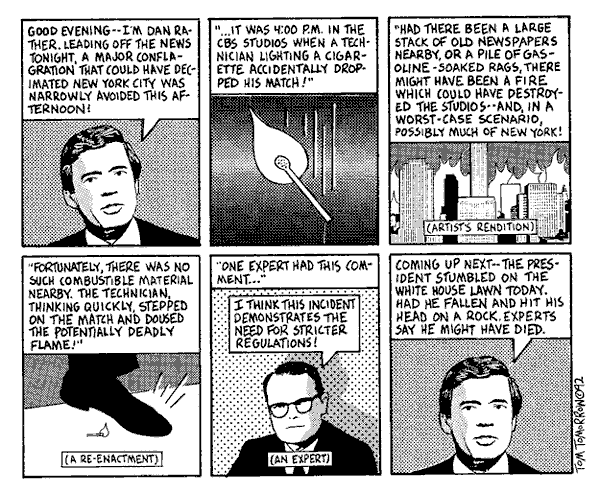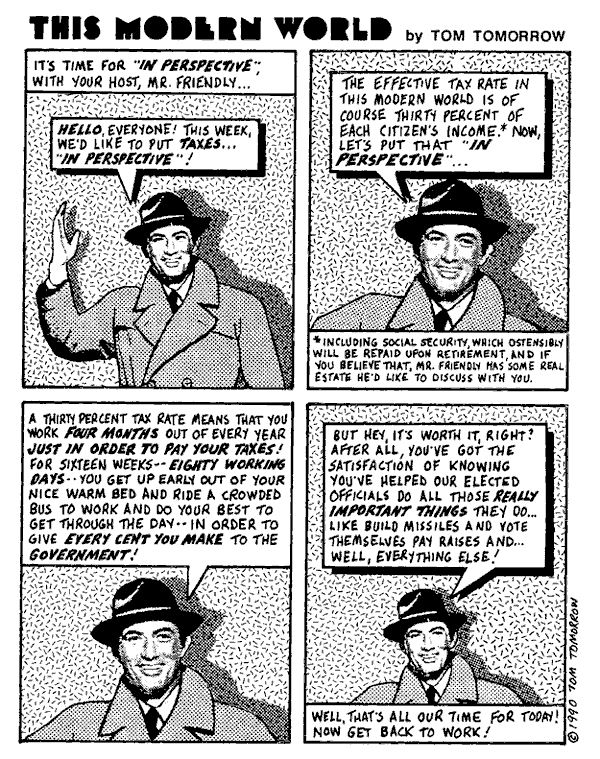J. Croft,
I’m more or less entirely with you as a matter of principle. (Like you, I believe in an unconditional right to keep and bear arms; like you I believe that the Constitution was a tyrannical usurpation in its conception, and that appealing to one’s favorite interpretation of the Constitution to somehow safeguard liberty is a sucker’s bet; like you I believe that the standing army and the (increasingly overtly militarized) standing police forces are one of the most toxic political forces in America today. But there are a couple of historical claims you make along the way which utterly baffle me.
You write: See, the backbone of the nation’s defense was on each of us arising out of necessity with arms and the skills to handle them well. They certainly did rise-whether the threat came from British Empire during the Revolutionary War; Mexico when it tried to conquer the Midwest during the 1840’s; …
I’m not aware of any point during the 1840s when Mexico “tried to conquer the Midwest” or when a Mexican invasion was resisted by citizen militia. Are you referring to the U.S. invasion of Mexico (1846-1848)? If so, then what attempt to “conquer the Midwest” was there, at any point? There was fighting between Mexican and U.S. soldiers, after professional soldiers in the standing U.S. army were deliberately moved, as an act of provocation, into the disputed territory between the Rio Grande and the Nueces river; at most, the Mexican end of the fighting was intended to recapture a small strip of southern Texas. In response the U.S. government–with the nakedly imperialistic President Polk at the helm–launched a massive invasion of Mexico, carried out not by militia, but by professional soldiers in the standing U.S. Army (cavalry and infantry) and Navy, which proceeded to invade Mexico, conquer it, seize its capital, and to seize 1/2 of Mexico’s territory, most notably Alta California and Nuevo Mexico (now California, Nevada, New Mexico, Arizona, Utah, part of Colorado, etc. The radical libertarians in America at the time — William Lloyd Garrison; Henry David Thoreau — opposed the war at the time, rightly seeing it for what it was — an imperial war, orchestrated by the expansionist Slave Power. This was no militia resistance; for the U.S.’s part it was no resistance at all. It was an act of military aggression, carried out more or less explicitly for the purpose of imperial conquest, and sold to the public with a combination of lies, equivocation, and by-jingo brutality.
Secondly, you write: Immigration was encouraged; millions of Europeans were shipped in who were pig ignorant of what Freedom is. Eventually their mentalities, formed by centuries of despots wielding absolute power over them, made more radical social controls a viable option. Controls… like the banning of guns in New York with the Sullivan Act in 1916.
This strikes me as bizarre. Have you read the editorials, speeches, etc. that led up to the passage of the Sullivan Act? The people arguing for the Sullivan Act were more or less universally anti-immigrant, and justified the gun grab quite explicitly as a way of keeping guns out of the hands of immigrants. For example, here’s the New York Times in 1905, on a forerunner concealed-carry licensing law, then being mooted in the state Assembly: “Such a measure would prove corrective and salutary in a city filled with immigrants and evil communications, floating from the shores of Italy and Austria-Hungary. New York police reports frequently testify to the fact that the Italian and other south Continental gentry here are acquainted with the pocket pistol, and while drunk or merrymaking will use it quite as handily as the stiletto, and with more deadly effect. It is hoped that this treacherous and distinctly outlandish mode of settling disputes may not spread to corrupt the native good manners of the community.”
The reason the Sullivan Act was passed was not because immigrants accepted or supported it. The reason it was passed was because the immigrants targeted (mainly eastern European and Italian immigrants) generally could not vote, and had no political power in the city machines; whereas the cities nativists, whipped up by anti-immigrant rhetoric, decided that they were willing to accept an unprecedented expansion of government power, government gun-grabs, and the beginning of police-state regimentation, as the price for government control over the demonized immigrant population.
I agree with you about the tyrannical nature of so-called “gun control,” and the tyrannical nature of the system which produced it. I agree with you about what needs to be fought for. But I think that it’s very important that, historically speaking, we keep the real enemy in our sights.


 Anticopyright.
Anticopyright.